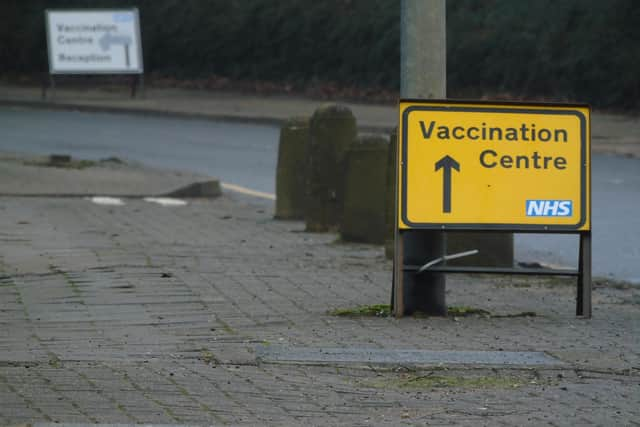More than half of all adults in Hertfordshire have now had at least one Covid jab
and live on Freeview channel 276
More than half of all adults in Hertfordshire have had at least one dose of the Covid-19 vaccine.
But in some pockets of the county the proportion of residents with one dose of the vaccine is less than 10 per cent.
Advertisement
Hide AdAdvertisement
Hide AdThat’s – in some part – a reflection of the lower age profile of the population in those areas, who have not been eligible for the vaccine.


But it does mean that nine out of 10 residents in those areas – which are dotted around the county – are still totally unprotected against the virus.
The data was included in a presentation delivered to Hertfordshire Health and Wellbeing Board, by director of public health Jim McManus on Wednesday, June 16.
Mr McManus reported to the board that overall 56.25 per cent of residents in Hertfordshire had had at least one dose of the vaccine – and 39.64 had had two.
Advertisement
Hide AdAdvertisement
Hide AdThat is lower than the England averages of 78.7 per cent and 57.4 per cent respectively, reported to the meeting.
But, Mr McManus said that that was a reflection of the younger age profile of the county – rather than the success of the vaccine roll-out, which prioritises largely according to age.
“You might think that Hertfordshire is actually much lower than the rest of England,” he said.
“Part of this is because of our age structure – and that these figures are not age-standardised. […] . . . our under 45 population is higher than most other areas in England.”
Advertisement
Hide AdAdvertisement
Hide AdMr McManus pointed to data that showed in excess of 90 per cent of the over-70s in the county had had two vaccinations – and more than 80 per cent of the 60-64s (84.8 per cent) and 65- 69s (89.4 per cent) .
In the remaining over-50 age cohorts, 78.79 per cent of the 55-59s have had two doses , as have 71.9 per cent of the 50-54s.
Most people below 50 have not been eligible for a second dose yet – but 81.9 per cent of the 45-49s have had the first dose – as have 76 per cent of the 40-44s.
Mr McManus suggested there were inequalities of vaccination ‘uptake’ relating to ethnicity and age – as well referencing the ‘geographical inequalities’ highlighted in a map.
Advertisement
Hide AdAdvertisement
Hide AdAnd he stressed that many of the vaccination levels across the county were higher than the national rate.
“That doesn’t mean we can be complacent because we have a lot of work to do,” he said.
At the meeting Mr McManus highlighted data that suggested two doses of vaccine – whether ‘Pfizer’ or ‘Oxford’ – are more than 90 per cent effective against hospitalisation.
That data also suggested that two doses of vaccine were 80 per cent effective against symptomatic disease – although that reduces to 30 per cent with one dose.
Advertisement
Hide AdAdvertisement
Hide AdAnd Mr McManus said to the board members that the government’s decision not to ease the Covid-19 restrictions from June 21 would enable every adult to receive a first dose of the vaccine – and for as many second doses to be delivered as possible.
Mr McManus reported that since May 14 the infection rate in the county had doubled from 12.5 to 38.5 (June 14) – due largely to Delta variant.
And he said most hospital admissions had been people who had been eligible for vaccination, but who had had either one or no doses.
Despite a lower rate of hospital admissions for Covid-19 patients, he stressed that hospitals remained busy with non-Covid patients.
Advertisement
Hide AdAdvertisement
Hide AdAnd he said keeping Covid-19 infection levels low, meant non-Covid demand could be met.
“If we end up with the NHS dealing with massive numbers of Covid infections then we have massive amounts of non Covid need that is pressing and cannot be met,” he said.
“We need to stop infections in order for people who are ill and need treatment for cases other than Covid not to be displaced from health care services.
“So our primary duty as residents is one of solidarity with people who need healthcare right now.
“It’s not about just avoiding huge numbers of Covid cases – it’s about treating others.”